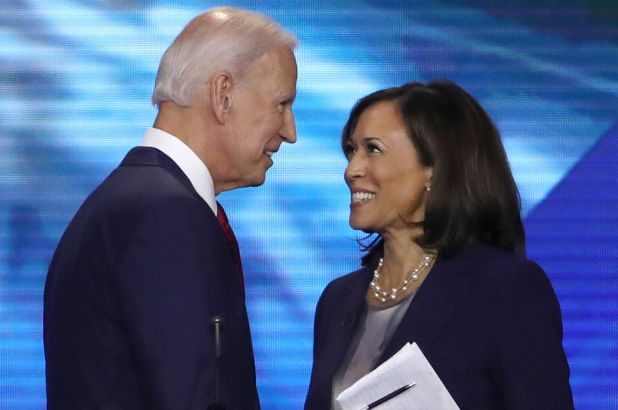Why Harris Matters

Manisha Sinha is not only one of our finest historians of the Civil War era, but she has an excellent op-ed on why Kamala Harris matters to her.
Despite well-deserved criticism from the left of some of their policies, Mr. Obama and Ms. Harris represent the cosmopolitan, interracial democracy that a majority of Americans aspire to live in today. Ms. Harris brings charisma and balance to the Democratic Presidential ticket, much like Joe Biden balanced Mr. Obama’s. Given her roots, Ms. Harris is also an appropriate riposte to Mr. Trump. Her record as California’s attorney general was on the whole progressive, despite serious missteps. She is well qualified to course correct when it comes to her own record and deal with the problems of police brutality and systemic racial inequality highlighted by the Movement for Black Lives. Her Indian background will also appeal to many Indian-American immigrants like me, if not to those who tend to be conservative and even racist in their views. As Preet Bharara, the Indian-American former United States Attorney for the Southern District of New York tweeted, “The most excited person I talked to today was my mom. Because she cannot wait to vote for Vice President Kamala Devi Harris.”
There have of course been many Indian-American politicians elected to office. One of the first was Judge Dilip Singh Saund, also from California, elected to Congress in 1956. Judge Saund’s election was a fitting conclusion to the infamous 1923 Bhagat Singh Thind case, in which the Supreme Court ruled that Indians were not eligible for American citizenship. That decision led to the denaturalization of around 50 Indian-Americans. The Immigration and Nationality Act of 1965, a direct result of the civil rights movement, abolished national quotas for immigration that gave preference to northern Europeans. In voicing a preference for immigrants from Norway, in 2018, Mr. Trump was harkening back to the immigration regime before its passage.
The 1965 law resulted in a flood of South Asian immigrants to the United States. Since then, many have been elected to office. Recently, Bobby Jindal of Louisiana and Nikki Haley of South Carolina were governors with presidential aspirations. But I felt no pleasure at seeing their rise, as they adopted the talking points of the Republican Party, small government, economic retrenchment and states’ rights, which hurt their poor white and Black constituents in particular.
Among Democrats, the emergence of politicians of Indian descent like Representatives Ro Khanna, Pramila Jayapal and Raja Krishnamoorthi has been far more exciting, at least to me. All were elected, like Ms. Harris, in 2016, an important ripple effect of the Obama presidency. They all had the audacity to hope. After an exciting start, Ms. Harris’s campaign came to a grinding halt before the major caucuses and primaries. But her historic run, following in the footsteps of Shirley Chisholm, the first Black woman from a major party to run for the presidency, was undeniable. Ms. Harris was not just another Indian-American politician running for office; as a woman of Afro-Indian descent, she appeals to me despite my own politics being more to the left. Moreover, Black women, many of whom could not vote until the passage of the Voting Rights Act of 1965, have since proven to be the most progressive voting bloc in American politics and the backbone of the Democratic Party.
Of course to the whites at Jacobin, she’s just another neoliberal. And I mean, she is to some extent, but she like almost everyone else who started their career in the 90s, came out of the Clinton era move to the right and is now moving back to the left.


